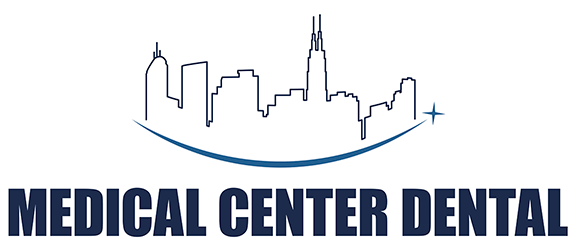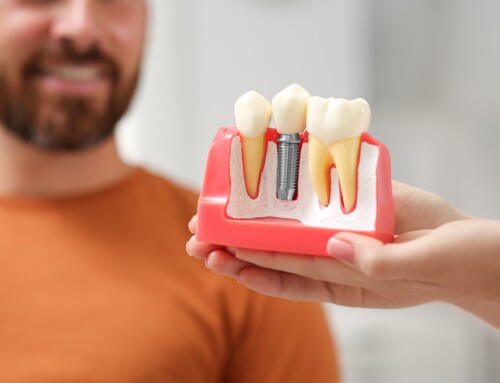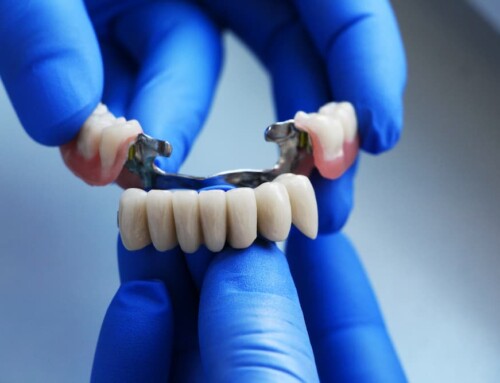Do you have a missing tooth? Dental implants are an excellent option because of their high success rates and being a painless procedure. While you may not feel any pain during surgery because you’ll be under anesthesia, dental implant pressure pain is common one to two weeks afterward. However, you shouldn’t fret, as dental implant pain is only temporary and easily managed with proper care. Understanding the causes of dental implant pain after surgery and the signs of complications will empower you to navigate your recovery journey successfully. Following the tips outlined in this blog for dealing with dental implant pressure pain will ensure a comfortable recovery.
Manage Symptoms
After the anesthetic wears off from your surgery, it’s common to experience minor pain and pressure at the dental implant site. Dental implant pressure is part of the healing process and generally peaks within the first 24 to 78 hours and becomes less painful afterward. Ways to relieve discomfort from dental implant pressure pain include:
- Taking over-the-counter medications or, if your dentist prescribes them, prescription painkillers can help manage the pain and swelling. Usually, pain medications are only needed one to two days after the procedure.
- To minimize pain, apply a cold or ice compress to the affected area for 20 minutes several times daily.
- Follow your dentist’s specific aftercare instructions for a speedy recovery from dental implants.
How to Eat
Dental implant surgery is invasive, and your mouth takes time to heal. During your healing journey, adjust your diet to avoid hard and crunchy foods that could cause additional discomfort or cause the dental implant to loosen. Therefore, adopting a soft food diet can ensure a successful implant.
- For the first 24-48 hours, stick to a cool liquid diet such as applesauce, smoothies, milkshakes, cold soups, fruit juices, and pudding.
- You can continue eating soft foods for up to 3 months afterward, including eggs, yogurt, cheese, potatoes, bananas, peaches, fish, chicken, ground beef, and pasta.
It is also important to stay hydrated while recovering from dental implant surgery.
Keep it Clean!
Poor oral hygiene increases the chance of peri-implant disease, as it creates an environment for bacteria to thrive and multiply in the surrounding tissue of the implants. Good oral hygiene helps ensure a successful dental implant and keeps dental implant pressure and pain at bay.
- Brush and floss daily
- Continue with routine teeth cleanings every six months.
Following a dental implant procedure, you should be gentle when brushing and cleaning your teeth to avoid opening any incisions. It is best to avoid smoking during dental implant recovery as smoking can increase the chance of dental implant failure, causing pain.
Attend All Follow-Up Appointments
Typically, your mouth takes up to two weeks to heal after getting a dental implant. Therefore, this is one of the first follow-up appointments set by the dental office. Attending this and all follow-up appointments is necessary to ensure everything is healing correctly.
If you experience pain after two weeks or if dental pain or pressure intensifies over time, it’s important to contact your oral surgeon immediately. Pain after the average healing time is an early sign of dental implant failure.
Recovery Made Easy: Rely on Ingenious Dentistry’s Specialized Care
Dealing with dental implant discomfort is part of the healing process after dental implant surgery. However, Ingenious Dentistry’s experience with many successful dental implant procedures can help make your recovery more comfortable. Our specialized care will give you the confidence to navigate your healing process after dental implant surgery. Reach out to us with questions about getting a dental implant, and our experienced team can see if you’re a good candidate for the procedure.
Featured Image: aslysun/Shutterstock







